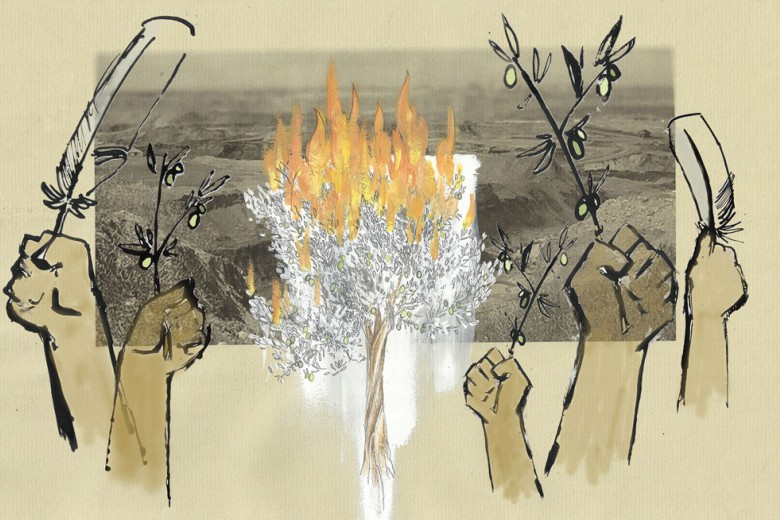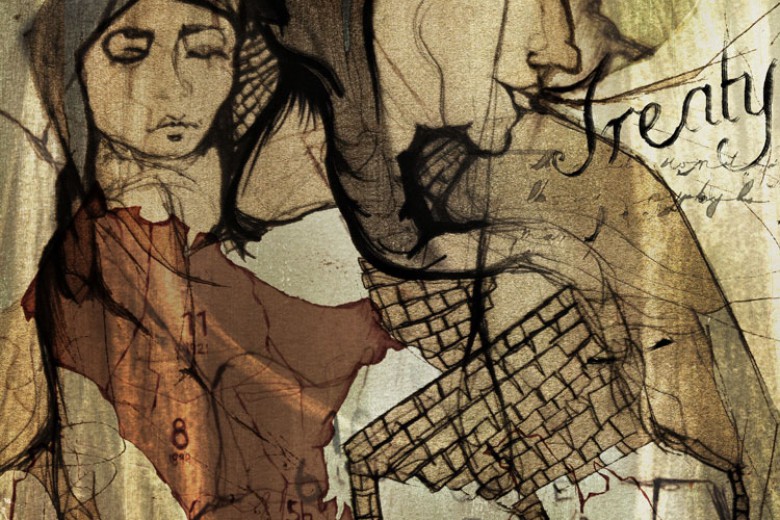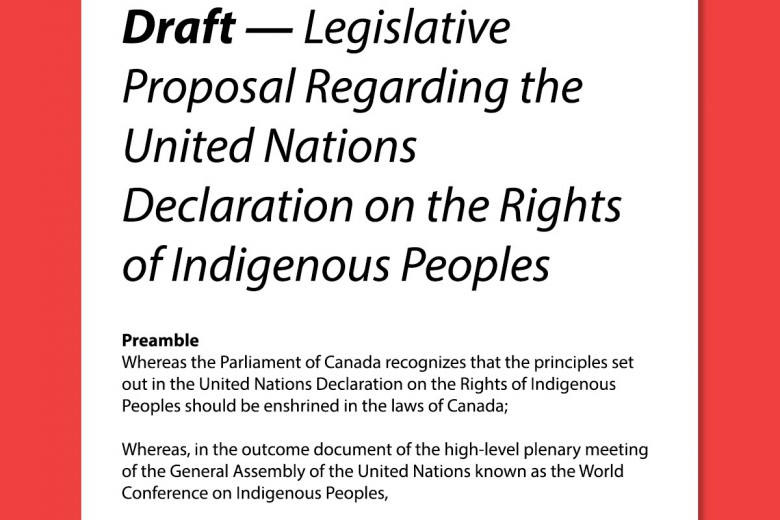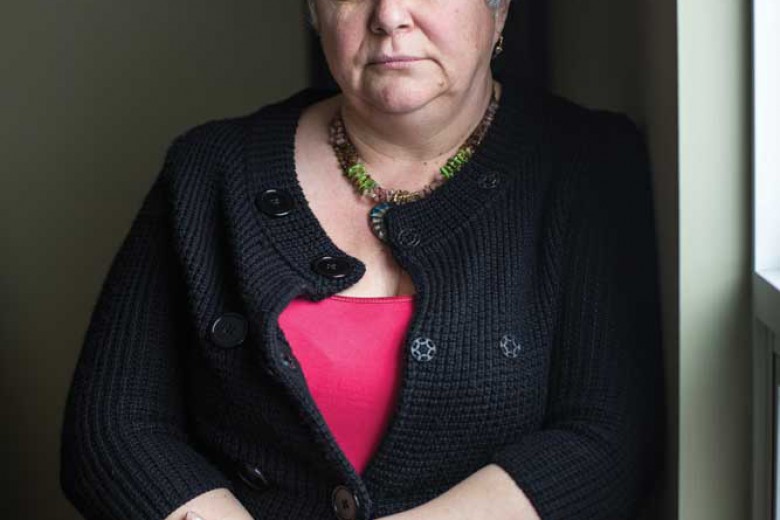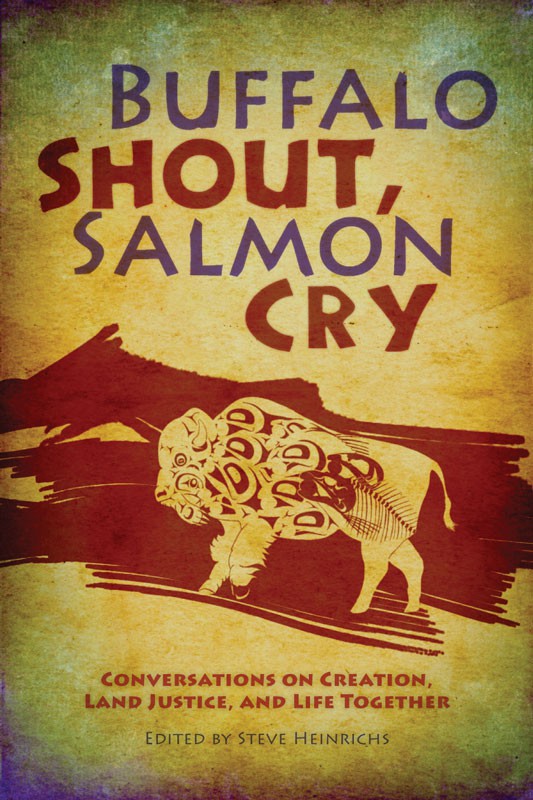
Buffalo Shout, Salmon Cry: Conversations on Creation, Land Justice, and Life Together
Edited by Steve Heinrichs
Herald Press, 2013
Christianity, said the Sioux author and activist Vine Deloria Jr., has a track record that “bring(s) fear into the hearts and minds of non-Christian peoples.” In the Americas, the church’s complicity with the violence and genocide of colonial empire runs from Columbus and the conquistadors through to Canada’s residential schools and beyond.
And yet some Christian leaders have been among the strongest critics of colonial practice, from Bartolomé de las Casas to Jeremiah Evarts to many in the churches today. For some of the authors represented in this anthology, this is the true position for a disciple of Jesus; for others, the whole structure of Christian belief is oppressive. Either way, in compiling this book, editor Steve Heinrichs has rooted himself firmly in the tradition of dissent and solidarity.
Buffalo Shout, Salmon Cry is a diverse compilation, commissioned from a wide range of Indigenous and settler writers. It contains poetry and political analysis, theology and anti-theology, history and vision, anger and conciliation, hope and stark reality. It offers no answers but presents real challenges to us all, irrespective of our religious affiliation or spiritual beliefs, our ethnicity or family history, and our current relationship to the land on which we live. Although originally conceived as a church educational resource (Heinrichs is director of Indigenous relations at the Mennonite Church Canada), it can inform and challenge much more widely.
To set the scene, Anthony Hall presents a survey of colonialism in North America. Anishnaabe feminist Leanne Betasamosake Simpson writes eloquently about the liberation of land as inseparable from the liberation of people. She recalls a teaching session with an Anishnaabe elder and a scientist. The scientist explained the concept of sustainable development: meet the needs and wants of the present generation of humans without compromising the needs and wants of future generations. Asked whether there is a similar concept in Nishnaabeg practice, the elder thought for a while and then replied that this sustainable development thinking is backwards. Instead, we should take as little as possible, be as gentle as possible with our mother the Earth, leave as much as possible for future generations to enjoy, and ensure that life can promote more life.
After contributions by two white Christians on volunteering at a Nebraska jail and working for reconciliation in Manitoba, there follows a series of theological essays. Indigenous theologians Randy Woodley and Lawrence Hart argue for the compatibility of Indigenous insights about the Earth with Christian faith. Ched Myers interprets the first 11 chapters of Genesis as a critique of the growth imperative common to both ancient Middle Eastern and modern western civilizations.
A third section offers a much more direct challenge to probably just about any reader. Three contributors critique the hierarchy, the quest for domination, and the objectification of the Earth as inherent both to Christianity and western culture itself. While these pieces present a vital challenge, the writers’ acceptance of traditional interpretations of scripture, and their failure to read it in its historical context, weakens their case. Yet perhaps their provocation is necessary to initiate serious changes in settler society. Another essay addresses the split within many First Nations between those who oppose virtually all industrial development and those who welcome it as a way to emerge from poverty.
After a complex and brilliant piece of poetry by the Stl’atl’imx writer and educator Peter Cole, the anthology looks for ways forward. There is an attempt here to build some common ground from which relationships can be built: all creation is a gift and a mystery; community is more than human; the universe is alive; humility and openness are good foundations; Indigenous land rights demand that we start talking seriously about reparations. If there is a sense of something lacking here, it is only what cannot be put into a book: the ongoing day-to-day work of building justice, learning from each other, and respecting the Earth. Such stories are always more exciting and provide a deeper learning experience when you live them.
If this book is about one thing, it is about relationships: between settlers and Indigenous people, Christianity and Indigenous spirituality, economics and the Earth, humans and other living beings, and between all of us and the land.
And because it is about relationships, it is also about putting our convenient assumptions on hold and listening – even when it hurts. Maybe especially when it hurts. Reading Buffalo Shout, Salmon Cry is in itself a listening exercise – sometimes exhilarating, sometimes painful – and it has also driven me to listen more carefully to my neighbours and hosts here in Treaty 6 territory.


